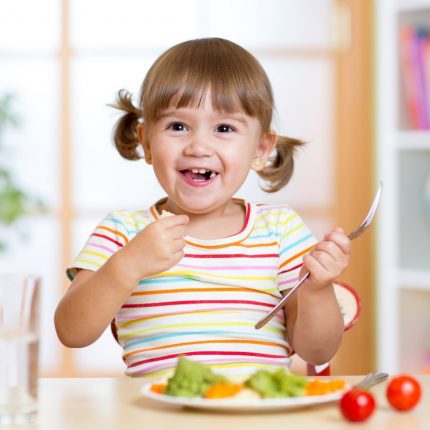
Homeschooling Children With Severe Food Allergies
February 10, 2022Food allergies can be dangerous for anyone, but they are especially scary for kids. Unfortunately, about 8% of children in the U.S. have developed food allergies, and about 40% of those children need to be treated in the emergency room for their allergic reactions.
In some cases, reactions to food allergies can be life-threatening. That’s a terrifying thought, especially when a child doesn’t know they have an allergy to something and tries it for the first time. Unfortunately, both public and private schools can present great risks for children with food allergies. While mostly unintentional, children who attend schools without rigorous food safety protocols in place are in danger if they have food allergies.
The cafeteria might serve something that sparks a reaction. Or, they might cook something in the same container as that ingredient. Your child might also swap snacks or lunch items with other students, not fully knowing what’s in their “trade” that could potentially be harmful. Another potential for a severe reaction is sick building syndrome, where the sufferer becomes so overwhelmed with headaches, dizziness, and/or nausea that are only present in certain buildings. Schools are often older construction, which exacerbates this condition.
Regardless of your child’s allergies, these risks have caused some parents to opt-out of public and/or private schools, and choose to homeschool instead. If you have a child with severe food allergies, homeschooling is a great way to monitor what they eat and provide a safe and controlled environment. When there are fewer risks involved, your child can be successful in their academic career without having to worry about their well-being.
Is it time to make the switch with your child?
How Allergies Affect Children
The reaction symptoms in children are often similar to those in adults. Some of the most common symptoms when it comes to food allergies include:
- A tingling tongue
- Hives or itching
- Abdominal pain
- Diarrhea
- Swelling of the lips, face, tongue, and throat
- Difficulty breathing
Obviously, seeing your child experience any of those issues would be terrifying. If you’re still considering keeping your child in school with others, it’s important to talk to the administrators and teachers about their allergies. Don’t be afraid to speak up and ask them what they’re willing to do to keep your child safe.
Usually, it’s probably not much. That isn’t a dig on public or private schools. The fact is, they can’t make major changes to the way they do things for one student. On the bright side, that can make your decision to homeschool that much easier.
How to Handle Your Children’s Allergies at Home
As a parent, knowing the foods your child is allergic to is important. It puts you in full control of what to prepare for them and how to make sure each ingredient is safe and doesn’t become contaminated by something else.
Every child is unique, of course, but some of the most common food allergies in children are:
- Peanuts
- Tree nuts
- Cow’s milk
- Fish
- Sesame
- Wheat
If you’re feeling overwhelmed by having to cook healthy meals for your child while teaching during the day, you’re not alone. But, you don’t have to spend hours in the kitchen making sure their food is safe. 
One of the best things you can do is to make sure your pantry is stocked. Make a big trip to the grocery store every few weeks to stock up on essentials. On nights you don’t feel like cooking or aren’t sure what to put together, you can look in the pantry and pull together something healthy and safe in a matter of minutes.
Try to create a routine around meal planning, as well. A good rule of thumb is to take some time on Sunday evenings to write out menus for the week, and how much time you’ll need to prepare everything. Having something in front of you can make the cooking process less overwhelming, so you can focus on developing dishes that are good for the whole family and safe for your child to eat.
Take Care of Yourself
Do you ever feel like you’re wearing a thousand hats? You’re a teacher, a parent, a cook, a “maid”, and you may even work a full-or-part-time job on top of it.
Doing all of those things without taking care of yourself isn’t sustainable.
You want to do the best job possible for your children, especially if they have to deal with food allergies. But, don’t forget to take care of yourself. Self-care is far from selfish, especially when you’re spreading yourself thin. Feeling overworked and fatigued can even lead to symptoms of depression, where you might start to feel hopeless, sad, or even worthless.
Managing your stress, as well as your mental and physical health, will actually allow you to do better for your whole family. Thankfully, self-care doesn’t have to be indulgent or even take a lot of time. Try some of the following each day to make your well-being a priority:
- Eating a healthy diet
- Exercising
- Practicing mindfulness/meditation
- Journaling
- Getting enough sleep
Setting a sleep schedule can help everyone in your family – especially your kids. One of the potential risks of homeschooling is a lack of structure. Creating a healthy schedule that includes going to bed at the same time each night will ensure your children get enough sleep so they’re awake and focused during the school day.
If your child has a food allergy, homeschooling them is one of the safest things you can do. When you control what goes on in their dietary environment, you take away so many risks and uncertainties, which will keep them healthier and happier as they continue to learn from home.
Latest Posts

Guest Post by Gabriel Morse For several years, I sat for long hours every day behind one of those battleship gray desks in a windowless, dull, gray office. The pay was enough to take care…
Read more >
This post is sponsored by Little Monsters Universe. I'm Tina Salmanowitz, an advocate for homeschooling and science education. With over a decade of experience as a science educator (in class…
Read more >
This post is sponsored by Time4Learning. Before the pandemic, it was business as usual for Boca Raton resident Nikki Warris. Her two daughters, 5-year-old Natalie and 8-year-old Lexi were…
Read more >

